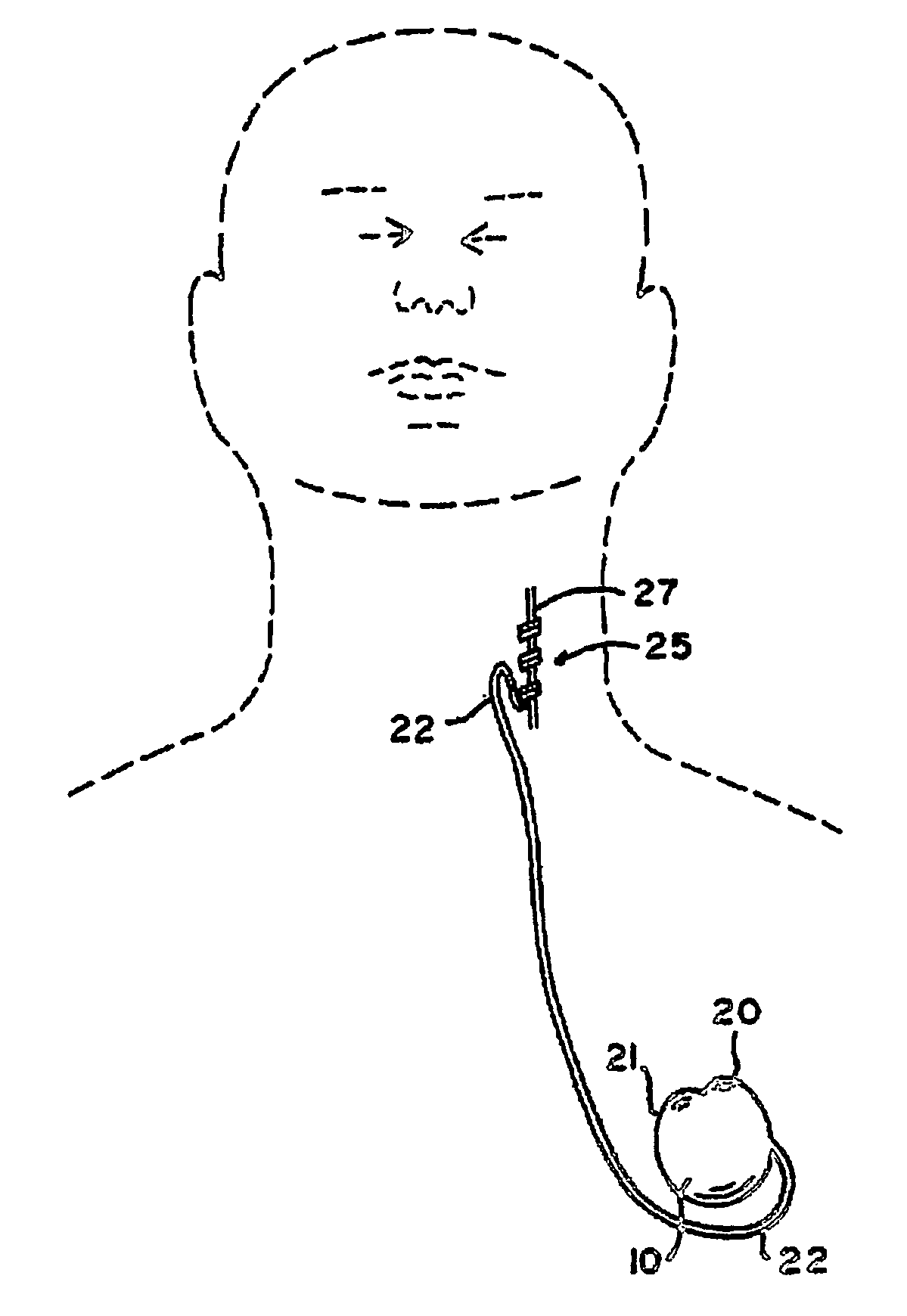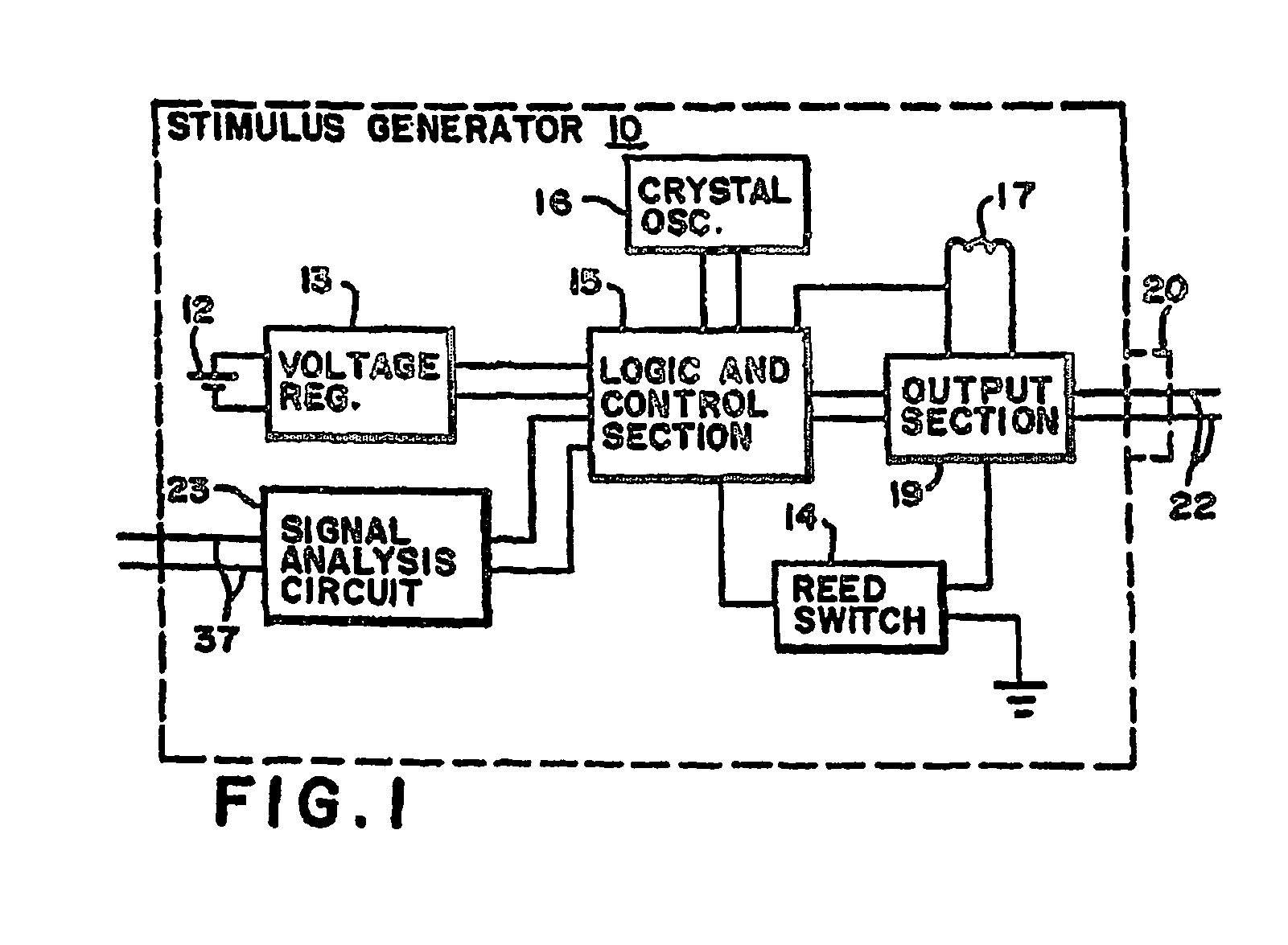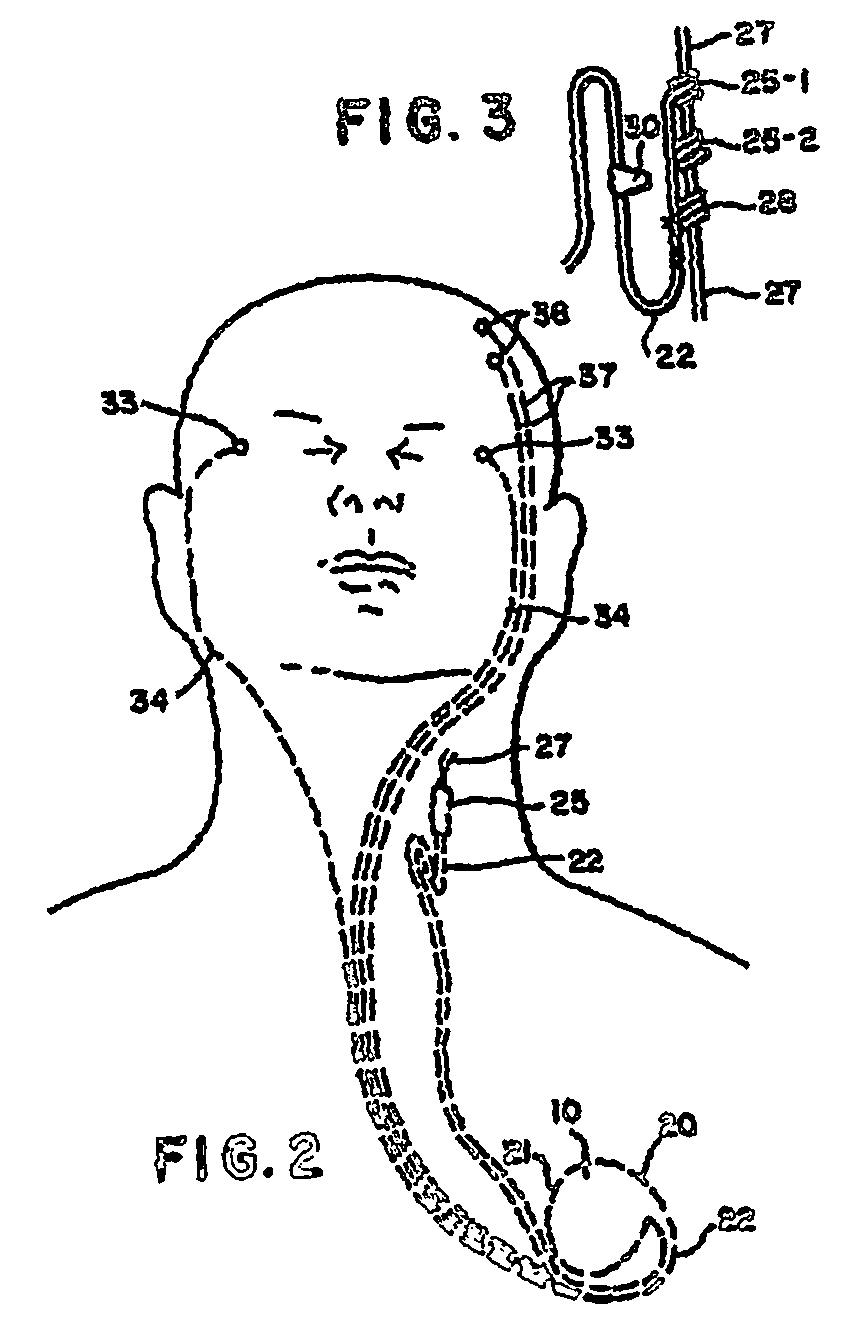Cervical vagal stimulation induced weight loss
a vagal stimulation and cervical spine technology, applied in the field of inducing weight loss, can solve the problems of profound bradycardia (slow heart rate) of patients, inability to maintain normal weight in patients, and inability to disclose clinical results of human subjects' testing of disclosed methods
- Summary
- Abstract
- Description
- Claims
- Application Information
AI Technical Summary
Benefits of technology
Problems solved by technology
Method used
Image
Examples
example 1
[0077]Fourteen patients were treated with chronic vagus nerve stimulation. Four men and ten women, with an average age of 46 years (SD±10) were treated. All but two (Hispanic and Middle Eastern) were Euro-Americans. The mean weight on intake was 91 kg (SD±27, range 46 to 137 kg) with a body mass index (BMI) of 43 kg / m2 (SD±5, range 18 to 49 kg / mn2). The average weight loss at one year was 7 kg (SD±3, range −6 to +24) with a mean drop in BMI at one year of 2 kg / m2 (SD±3, range −2 to +8)k. All patients denied making any major attempts to diet or exercise during the study. Medication changes of all patients were minimized during the study.
[0078]The neurostimulator device described above was implanted under the skin of the chest, and connected in the neck to the trunk of the left vagus nerve. Default device parameters were used except for the output current was from about 0.5 to 1.5 mA (most patients received 0.75 mA) and the pulse width was either 250 μs or 500 μs. The device cycled on...
PUM
 Login to View More
Login to View More Abstract
Description
Claims
Application Information
 Login to View More
Login to View More - R&D
- Intellectual Property
- Life Sciences
- Materials
- Tech Scout
- Unparalleled Data Quality
- Higher Quality Content
- 60% Fewer Hallucinations
Browse by: Latest US Patents, China's latest patents, Technical Efficacy Thesaurus, Application Domain, Technology Topic, Popular Technical Reports.
© 2025 PatSnap. All rights reserved.Legal|Privacy policy|Modern Slavery Act Transparency Statement|Sitemap|About US| Contact US: help@patsnap.com



